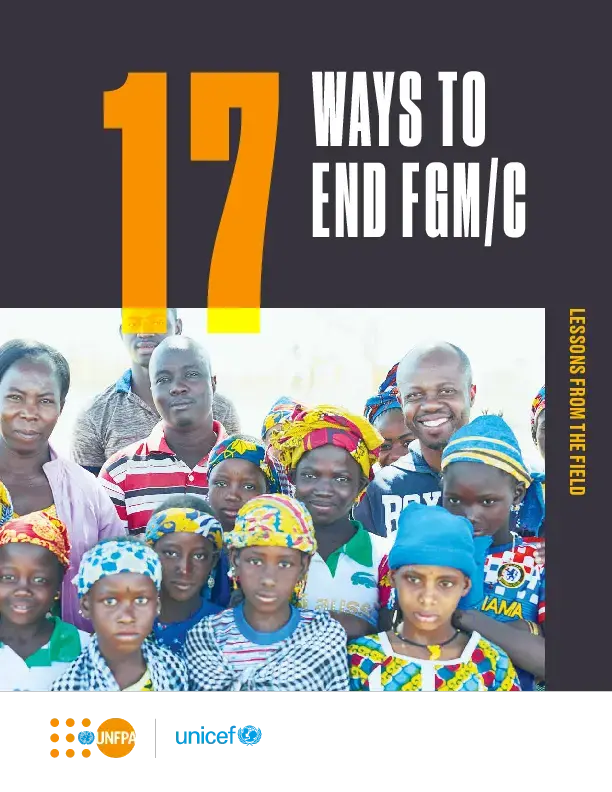Traditionally, ceremonies surrounding FGM/C in Guinea were considered to be joyful gatherings— for families, if not for the girls being cut. In the shadow of Ebola, these ceremonies were halted or conducted in private. During and immediately following the outbreak, which ravaged Guinea from 2013 to 2016 and resulted in 2,553 deaths, the fear of contagion and recommendations by health authorities kept social gatherings to a minimum. A socio-anthropologic study carried out in 2014 revealed that communities were ready to stop the practice of FGM/C during the Ebola crisis as a way to break the chain of contamination.
Who we are
What we do
17ways-singlepages-24july-lowres

Publications
17ways-singlepages-24july-lowres
Publication date
01 January 2017

